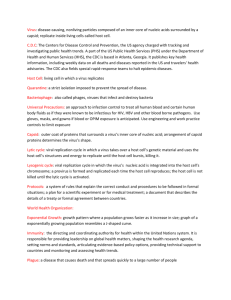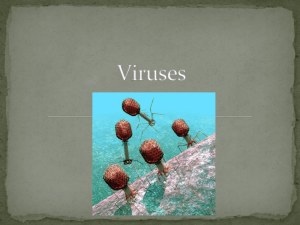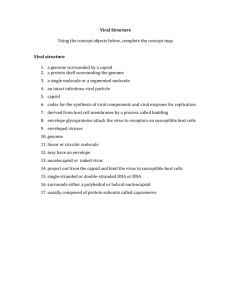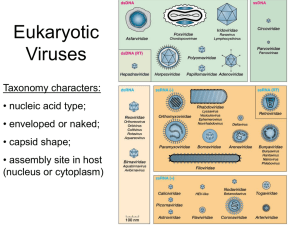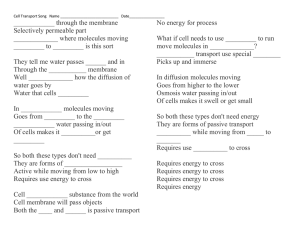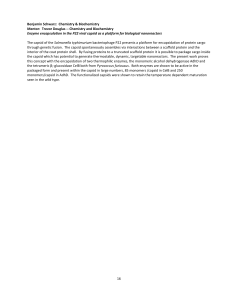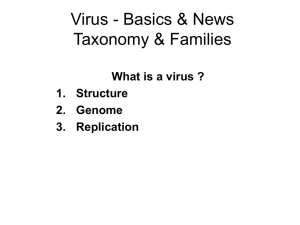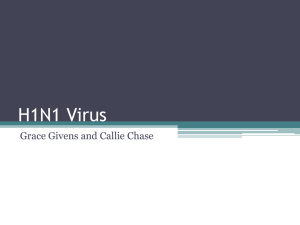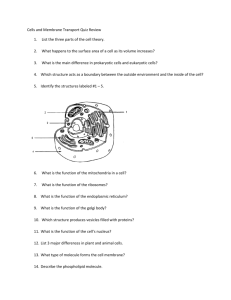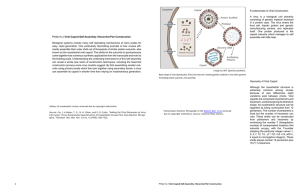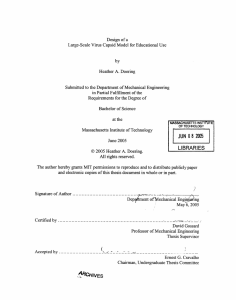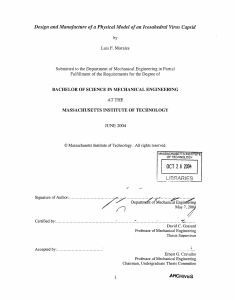Virus structure - 2011SD74Biology11
advertisement
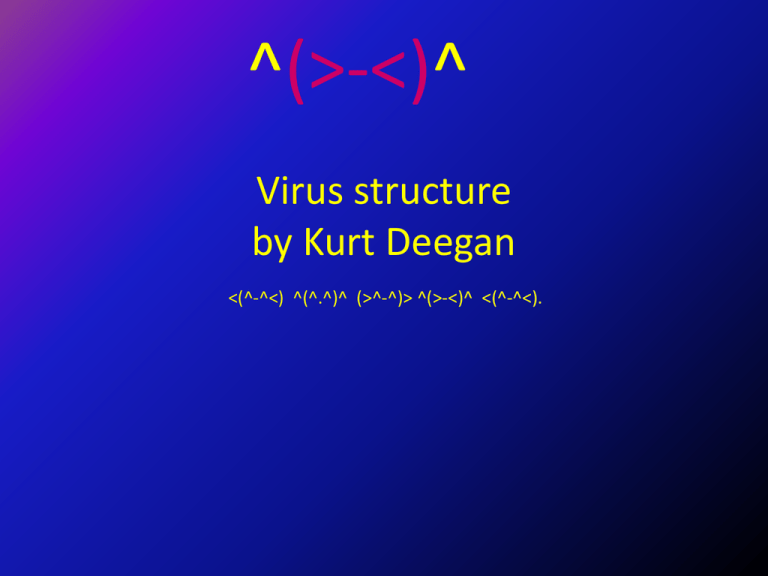
^(>-<)^ Virus structure by Kurt Deegan <(^-^<) ^(^.^)^ (>^-^)> ^(>-<)^ <(^-^<). activity -The protein shell of a virus __________. -the basic subunits of the capsid_________. -constitute a broad group of naturally occurring molecules________. -Is a biological membrane that separates the interior of all cells from the environment________. -Is the entirety of an organism's hereditary information________. l-------------------------------------------------------------------------------------------------l l usable words l l l l cell membrane genome l l capsomere capsids l l lipids l l l l l l---------------------------------------------------------------------------------------------------l Vocab • Capsid ; is the protein shell of a virus. • Capsomere: The basic subunits of the capsid, an outer covering of protein that protects the genetic material of a virus. • Lipids: constitute a broad group of naturally occurring molecules, that include fats, waxes, sterols, fat-soluble vitamins, monoglycerides, diglycerides, triglycerides, phospholipids, and others. • Cell membrane: is a biological membrane that separates the interior of all cells from the outside environment. • In modern molecular biology and genetics, the genome is the entirety of an organism's hereditary information Diagram Diagram of how a virus capsid can be constructed using multiple copies of just two protein molecules Notes A complete virus particle, known as a virion, consists of nucleic acid surrounded by a protective coat of protein called a capsid. These are formed from identical protein subunits called capsomeres. Viruses can have a lipid "envelope" derived from the host cell membrane. Video link • http://youtu.be/8sUaxWuzmc4
